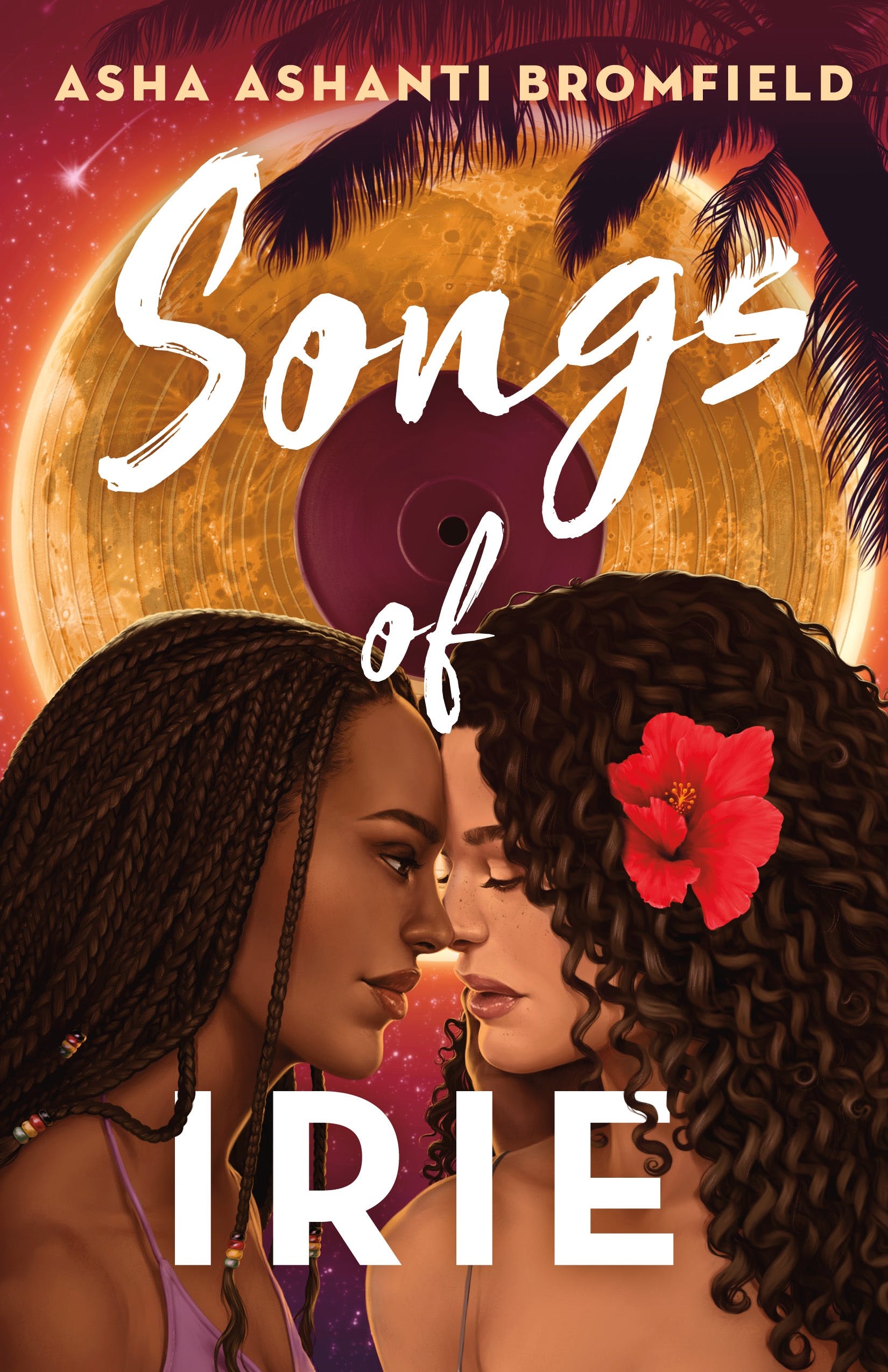Songs of Irie

Songs of Irie
See you tonight, Irie.” Siarah waves, calling back. “Hold off on di revolution until then.”
I stick out my tongue as they saunter through the door.
Daddy turns the music back up before heading to grab some more boxes. “Start sorting these fi me.” He hands me a crate.
I grabbed the pile of records, placing them down on the table. As I start to sort them, one of the vinyl casings catches my eye. It's a black cover that reads, “DON'T YOU CUT OFF YOUR DREADLOCKS,” in big black-and-yellow lettering – definitely a revolutionary song
“Daddy, have yuh played this one yet?” I hold it up to him.
“Ah who sing sat?” He squints.
“Uhh...” I scan the back. “Linval Thompson. Looks like it came just came out – ”
POP. POP. POP. POP.
The piercing sound stops me mid sentence.
POP. POP. POP. POP. POP. POP.
“Get down!” Daddy screams.
But I am frozen.
“Irie!” he lunges toward me in yanks me by the wrist, pulling me to my knees. I hit the hard tiles with a thud, and for a second, I swear my bones have shattered. I wince in pain as the records spill out onto the floor.
Bromfield has covered a lot of ground in this historical saga of Jamaica surrounding the national election of 1976, a time of great unrest and violence.
Irie (which means a friendly Rastafarian greeting) is the daughter of a record store owner in the ghetto and supporter of the PLM party led by Morris, the fictionalized version of the PNP party led by Manely. Jillian is the daughter of a political advisor to the leader of the JCG party, led by Kelly, the fictionalized version of the JLP party led by Seaga. Jilly’s life on “the hill” is luxurious, and she lacks for nothing material. The girls meet at a prestigious high school. Irie has received a scholarship to attend. While in the safety of the school, the girls develop a close friendship. This friendship is tested to its limits when the girls’ backgrounds come into conflict.
The girls’ relationship increases in complexity as a romance forms between them, a relationship that was illegal in Jamaica in 1976 and punishable by imprisonment.
The political unrest and violence is the backdrop for this novel, but many other topics are covered, including: racism, the rise of Reggae as the voice of the poor, queer sex, sex trafficking, political corruption, ganja smoking, alcohol consumption and religion.
Readers are kept on the edge of their seats as the nonstop action unfolds. Songs of Irie is a gritty novel that illustrates the hard realities of the times and when no one is safe. The dialogue is particularly strong although its moving in and out of the Patois dialect can slow the reader down. Some of the minor characters are one-dimensional, which serves the plot, while others are well-developed, and readers see growth as they navigate the events of 1976. The chapters are written in the first person, alternating between Jilly and Irie. There is not much to distinguish their individual voices other than their names at the beginning of each chapter.
There are a couple of minor plot oversights. For example, Irie somehow still has the vinyl record she uses as an “instrumental” in her dance hall debut, even after their bike ride home which includes a romantic interlude in a field where the girls subsequently are chased, terrorized and accosted by vigilantes.
Ruth Scales McMahon is a professional librarian working in a high school in Lethbridge Alberta.
